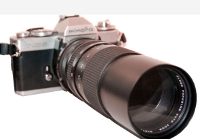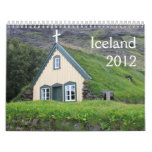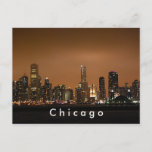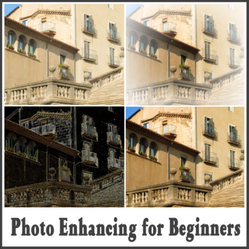
DSLR Photography for Beginners
by WordCustard
Learning digital photography? These DSLR tips and reviews of books for digital SLR beginners will help you to get more from your camera.
Getting to Know Your DSLR
DSLR (digital single lens reflex) photography is growing in popularity as camera manufacturers produce better equipment at ever more affordable prices. There has never been a better time to learn digital SLR photography or to improve on your skills.
If you already own a DSLR it's a safe bet that you've tried it out already. Unless you have had photographic training or a background of darkroom photography it's also likely that you could get more from your camera.
Here I share my research into getting started with DSLR photography with reviews of a couple of great learning digital photography books for beginners.
Copyright: This article and the reviews it contains copyright ©WordCustard on Wizzley, May 2011. Article preview image courtesy of morgueFile.
Do you own a DSLR?
Digital Photography Top 100 Simplified Tips and Tricks
This is a great book for beginning DSLR photographers. The Visual Guides have made simplifying technical topics their speciality with their colorful and friendly format. I love the clear explanations that they provide while never making you feel like you are stupid for not knowing these things.
The Digital Photography Top 100 Simplified Tips and Tricks is no exception. Packed with images, eye-catching tips and diagrams, and concise text, it gives you all the essential information in small bites. It's a book you can dip in and out of to learn a little or a lot at a time.
The tips and tricks include:
- How to set up your DSLR camera correctly, e.g. file formats; ISO setting; white balance; image resolution.
- How to get more from a photography trip, e.g. weather conditions; time of day; and what to take with you.
- How to use artificial (flash) and natural lighting to your best advantage.
- Getting to grips with exposure, metering and dynamic range.
- Getting creative with focus and depth of field.
- Composing the best possible photo.
- Post-processing your photography using a computer.
Summary:
This digital photography guide is perfect for an absolute beginner but I suspect those with some skills will find it a useful way to refresh their knowledge and may come away with some new tricks up their sleeves too.
It combines clarity with a fun and inviting format and is packed with common sense advice on getting the most from your photography while shooting and also when editing. It also suggests some fun photo projects to show off your finished work.
 |
| Digital Photography: Top 100 Simplified Tips & Tricks Visual Only $36.81 |
 |
| Digital SLR Cameras and Photography For Dummies For Dummies |
Digital SLR Cameras and Photography for Dummies
The For Dummies series have earned their place as one of the most trusted how-to guides to, well, pretty much everything. If by any chance you are not familiar with the series, they have chatty style and brain-friendly organization which is consistent across the series (in other words, if you've read a For Dummies on any other topic, you can expect this book to follow a similar format).
Although packed with photo examples and handy diagrams, Digital SLR Cameras and Photography for Dummies has a lot more words to read and digest than the Visual guide reviewed above. This makes it more of a book to sit down with during a quiet half hour, cup of coffee by your side and camera close at hand to experiment with settings.
If you want to actually understand what a D-SLR is and how it works, this is the book for you. It takes you on a thorough tour of the workings of your digital SLR (which they call a dSLR) and also guides you through choosing the best camera for you.
Other things the For Dummies guide to Digital SLR Cameras and Photography covers include:
- Choosing and using DSLR camera accessories and equipment.
- In-depth guide to exposure, metering and focus.
- Which lens to use and how to get the best from it.
- Getting sharper pictures.
- Night and action photography and time lapse.
- File formats and understanding RAW (the format that professionals use).
- Composition for more interesting images.
- Post-processing using Photoshop or similar software, plus how to print your photos at their best.
- The Part of Tens: a For Dummies extra that includes quick tips and additional information grouped into lists of 10.
Summary:
This is a book that introduces you to almost every aspect of DSLR photography and gives you a foundation level of knowledge that you can go on to build upon at intermediate level.
I'm impressed by how much is packed into its pages and though I haven't worked my way through the whole book yet the For Dummies brand practically guarantees that everything in it will be understandable and helpful. You can just read the chapters that interest you to gain new skills and insights in one area of your digital photography. If you invest the time to read it cover to cover, however, it's easy to see how this book could take you to the next level as a DSLR enthusiast.
5 Things You Can Do to Improve your D-SLR Photos Right Now!
- Read your camera manual. If it bores or confuses you (and yes, many of these manuals are not riveting bedtime reads) ask a photographer friend to explain the technical parts to you. Understanding how to use things like white balance are your key to escaping point-and-shoot.
- Slow down. What's your hurry, Harry? Action photography aside, I bet if you take 2 minutes to compose and prepare for a shot, you will get yourself a better picture than if you launch straight into shooting 20 photos in the same 2 minutes.
- But be prepared! Stay alert for unusual compositions or fleeting moments, whether it's the expression on a baby's face or a golden ray of light.
- Use a tripod. Modern cameras are becoming better at compensating for all those little wobbles, but a DSLR can be heavier and more prone to camera shake than your pocket-sized compact. Add a heavy-duty lens and you will definitely find a tripod helps you to get sharper photos.
- Be unconventional. Get up early. Leave the path. View life from a different angle. The unexpected can make for some great photography.
If You Enjoyed this Page on Digital SLR Photography for Beginners..
Don't miss these beginning photography tips (more coming soon)
Guide to Getting a Great Self Portrait
When you need a picture of yourself and don't have a pro to hand, use these easy tips to get a self portrait photo that flatters you.
How to Pose for Photographs
Learn how to pose yourself and to help others pose when you are the photographer.
Hey, Before You Go...
Why not join me here on Wizzley and build an online income writing about things you love! Just click the link to get started.
You might also like
Easiest Way to Watermark a PhotoIf I can do it so can you! I couldn't understand all the directions and made ...
Enhance Your Photos: For BeginnersFree downloadable software and easy-to-learn tools can transform your so-so p...






 How to Make a Black Swan Ballerina Tiaraon 10/21/2011
How to Make a Black Swan Ballerina Tiaraon 10/21/2011
 Learn How to Read Chinese and Have Fun Tooon 07/18/2011
Learn How to Read Chinese and Have Fun Tooon 07/18/2011
 How UK Writers Can Make Money Writing Articleson 06/08/2011
How UK Writers Can Make Money Writing Articleson 06/08/2011
 How to Make a Small Room Look Bigger Using Clever Storageon 06/06/2011
How to Make a Small Room Look Bigger Using Clever Storageon 06/06/2011


Share Your Thoughts on Taking Photos with a DSLR
I want to get more into photography this spring and this will come in handy. You can waste a lot of money on equipment you don't need.
Great tips, Wordcustard. I have a new camera and need to study that (boring) manual.
Fantastic tips. Moving from a point and shoot to a DSLR can be challenging, but if you love great photographs it's worth the effort. I've been considering a half step of sorts. A micro four thirds model. But, I haven't made up my mind yet. Thanks for the DSLR photography tips.
I love my SLR camera!
On my wish list - but first I have to learn to use a little point and shoot! Your tips are great and will be helpful to any aspiring photographer!
I think there is something to be said for having a mastery of film photography, Kathy. Yesterday I went out with a DSLR which only has very limited storage capacity on the highest quality mode. It was like working with film in that it forced me to spend much more time composing and much less shooting. The photos were better for it and much easier to sort through too!
Would I be showing my age if I told you I have several SLR's but they are all film. I had invested so much in lenses, filters, etc. and don't own a DSLR. I had one a few years ago, but lost it and have never replaced it. Now all I have is an OK point and shoot. I am still a film buff except for the fact that I do like that you can just delete if you don't like a shot with the digital ones :)
Great instructional guide for the DSLR.
I'm still waiting to take the plunge and get the DSLR. Seems if I wait long enough they will get smaller. Although I have a few acres of backyard, I take most of my pictures when I'm on my exercise walks and I keep both my Flip and my Canon Powershot in my fanny pack for easy access. I enjoy it, and for now, that counts the most. What I miss most is not being able to get good pictures at dusk of the sky without making the foreground dark. If I get the colors of the sunset I don't get what the naked eye sees of the trees and vineyards under it. The books sound really good.
This is great information about DSLR cameras. I've been thinking of getting one. I use a Sony Cyber-shot with some nifty and convenient features, but the DSLR just takes more professional looking photos.